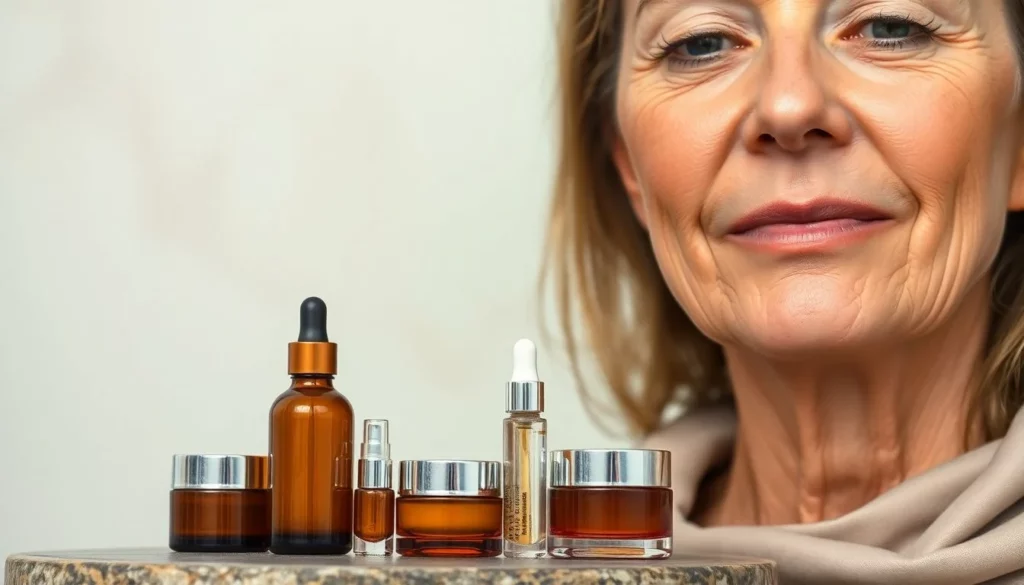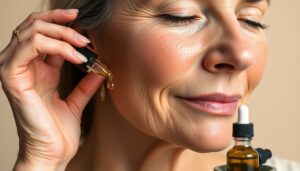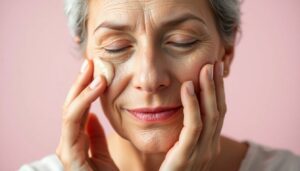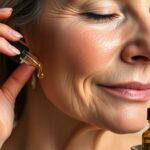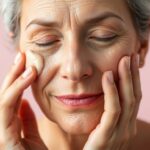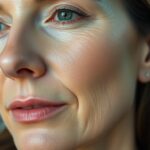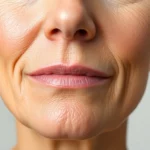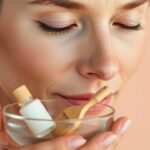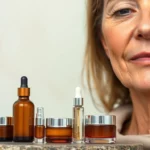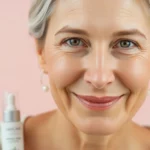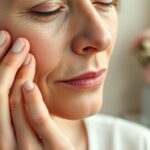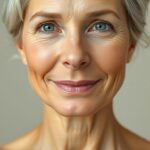Is your skin itchy? Do you feel like it’s always peeling? Are wrinkles starting to stand out? Managing dry, aging skin can seem like a never-ending struggle. But, don’t worry! You can regain that healthy, glowing appearance.
Our skin changes as we age. It tends to get drier. That’s due to a decline in oil production, hormonal changes and environmental factors. The good news? You can treat dry, aging skin with the correct information and skincare. A look that not only appears, but feels great skin, is yours for the taking, however.
Understanding Dry, Aging Skin
Dry, aging skin has causes and symptoms in a category of its own. Why is this important? Well because it makes it easier for you to care for your skin! Let’s dive in.
Why Do Skin Get Dry with Aging?
Many of these factors are biological in nature. Sebum production declines. This oil has moisturizing properties. There’s a decrease in collagen and elastin, causing a loss of elasticity. (As well as skin cell turnover becomes slower, creating dullness.) Menopause can cause hormonal shifts, too. These can dry out your skin pretty bad.
How Aging Impacts the Skin’s Moisture Barrier
View your skin barrier as a shield. It retains moisture and keeps bad stuff out. Aging weakens this barrier. It can’t hold water as well. The moisture barrier is also damaged by things like sun, wind and pollution.
Positioning Tag: Recognizing the Signs: Environmental and Aging Skin
How do you know you have dry as well as aging skin? Watch for these red flags:
A dryness that won’t go away.
Flaky skin, indicating a lack of hydration.
Losing collagen in the skin, fine lines and wrinkles becoming apparent.
Losing elasticity, your skin may feel less bounce.
Posterior, spinal or cranial nerve avulsions.
Lack of luminosity, your skin appears less luminous.
Important Show More (+) Ingredients to Search Out in Skin-care Products
Some are excellent for conditions of both dryness and aging. Being aware of these will help you hunt for the right products.
Humectants: Hydration Heroes
Humectants are moisture magnets. They suck water out of the air into your skin. Examples include hyaluronic acid, glycerin, and honey. They can also hydrate your skin, although they may have less effect in extremely dry climates.
Emollients: The Smoothers and Softeners
Emollients literally fill in the gaps between skin cells. Emollients include ceramides, shea butter and squalane. Your skin feels smooth because of them. They also prevent water loss. For some people, they may feel greasy.
Occlusives: Locking in Hydration
Occlusives create a physical barrier on your skin. This locks in moisture. Occlusives include petrolatum, mineral oil, and beeswax. Some people feel like they’re too heavy but they do really protect dry skin.
How to Build Your Skincare Routine for Dry, Aging Skin
A good skincare routine will be gentle and hydrating. Here’s how to create one:
A.M. Routine: Hydrating and Protecting
Mild Cleanser: Use a gentle cleanser first. That won’t strip your skin of its natural oils.
Hydration Serum: Use an hyaluronic acid serum. It will attract moisture to your skin.
Moisturizer: Apply a thick cream for emollient-rich moisturization. It will keep skin feeling soft throughout the day.
Wide-spectrum sunscreen: Keep your skin protected from sun damage. This is the first step, and the most crucial one.
リペアとリプレンィッシング: イーヴニング・ルーティンe
Oil Cleanser: Use oil cleanser to remove makeup and dirt. It nourishes as it cleanses.
Hydrating Serum: Apply retinol serum. It can help reduce wrinkles.
Rich Moisturizer: A heavier cream for overnight repair.
Facial Oil: Lock in all that moisture with a facial oil.
Weekly Treatments: Exfoliation and Masks
Exfoliate: Use a gentle exfoliator once or twice a week. Chemical exfoliants such as AHAs/BHAs or enzymatic peels work great—they slough off dead skin cells so products penetrate better.
Masks: Weekly, apply a hydrating mask. Look for ingredients like hyaluronic acid or aloe vera.
Lifestyle Factors for Healthy, Well-Hydrated Skin
What you do day in and day out really matters. Hydrating from the inside and living a clean lifestyle weighs a ton.
Drinking Enough Water: The Power Of Hydration
Water helps maintain your skin fleshy. Aim for eight glasses a day. It’s an easy way to enhance skin health.
Skin health and nutrition: foods to include and avoid
Consume foods rich in antioxidants. Berries are great and leafy greens too. Healthy fats (like those in avocados) help as well. Steer clear of processed foods and sugar sweetened drinks.
How to Shield Your Skin from the Environment
Sun protection is key. Avoid spending too much time in extreme weather conditions. Aw, quit smoking because it damages skin.
Tailored Approaches to Addressing Specific Concerns and Conditions
Dry, aging skin may have other challenges, as well. Eczema and rosacea, to name a few.
Eczema and Dermatitis Management
Use gentle skincare products. Stay away from things that make your skin itch. If warranted, see a dermatologist.
Soothing Rosacea-Prone Skin
Pick skin-care products that won’t cause flare-ups. Steer clear of common triggers, such as alcohol.
Conclusion
Caring for dry, aging skin requires an understanding of what it needs. Choose the right ingredients. Build a consistent routine. Live a healthy life. With some great skin care, you can have healthy, glowing skin at any age! Check out these tips and consult a dermatologist. They can offer you tailored advice.
